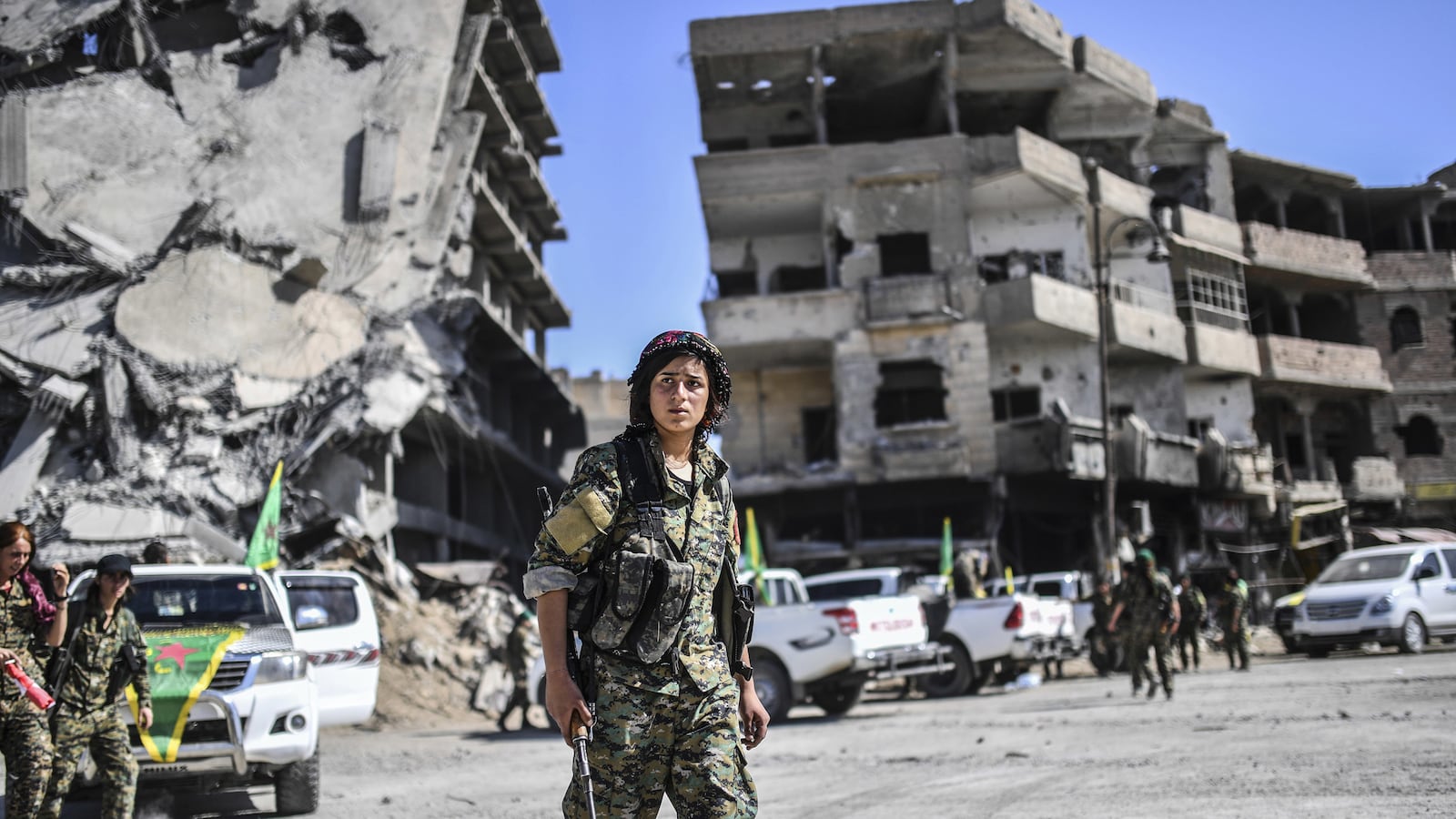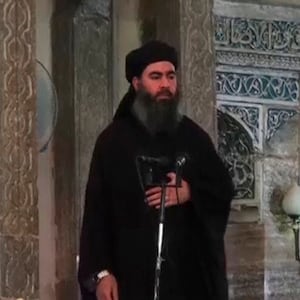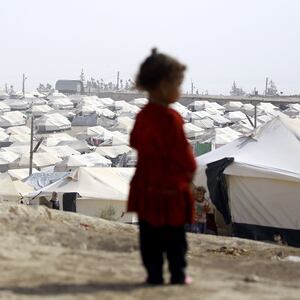The American allies recently abandoned by the Trump administration played a key role in hunting down ISIS leader Abu Bakr al-Baghdadi and warned as far back as March that the terror chief had taken residence in Idlib, Syria.
The mostly-Kurdish troops known as the Syrian Democratic Forces helped American special operators find and kill the man who had laid waste to much of their homeland in northern and eastern Syria, but the relationships and intelligence networks they forged with American counterparts now appear in doubt after the Trump administration greenlit a Turkish invasion of SDF-held areas and announced a U.S. withdrawal. Adding insult to injury, Baghdadi was found just a short trip across the Turkish border in Idlib-province.
That’s exactly where the SDF said he would be.
“Current information indicates that the leader of the terrorist organization Abu Bakr al-Baghdadi has escaped to the northern province of Idlib,” Nuri Mahmoud, a spokesman for the Kurdish forces who make up much of the American-backed SDF, told Kurdish news outlets on March 24.
The moment is tinged with a bitter irony for the SDF. Kurdish forces helped deliver Baghdadi into the arms of U.S. special operations forces just as a Turkish invasion, greenlit by the Trump administration, threatens to destroy the Kurdish para-state and intelligence networks which made the Baghdadi raid possible.
SDF officials have since confirmed that Baghdadi made his way to Idlib shortly after the U.S-led anti-ISIS coalition captured the town of Baghouz. The capture of the town—the last populated area held by ISIS—marked the official end of the caliphate as an organization that held territory and a historic defeat for the group.
The fall of the town, along the border between Iraq and Syria, prompted a rare video appearance from Baghdadi, who had only been seen in public once prior, during a sermon at the al-Nuri mosque in Mosul in 2014. In the eight minute video, Baghdadi appears fatter and comfortable, surrounded by aides in a room with a Kalashnikov by his side. He acknowledge the group’s defeat in Baghouz but played the role of jihadi global statesman by accepting pledges of allegiance from far-flung jihadi affiliates even as his own caliphate stood in rubble. ISIS would “double the effort and intensify the blows against the Crusaders, apostates, and their supporters,” Baghdadi said.
That same month, SDF officials once again hinted that they may be onto Baghdadi’s location in northwestern Syria. In April, SDF spokesman Mustafa Bali flagged intelligence from an interview with Osama Awaid al-Saleh, a purported “oil minister” in ISIS who helped set up sleeper cells from the group and was later arrested. Al-Saleh, Bali claimed, had transferred 40 tons of ISIS gold into Idlib province and “point[ed] out Syria’s Turkish-occupied territories or a neighboring country in regard to whereabouts of Baghdadi.”
The operation to track Baghdadi down, however, appears not to have begun until later in the summer. “For five months there has been joint intel cooperation on the ground and accurate monitoring, until we achieved a joint operation to kill Abu Bakir al-Bagdadi,” SDF commander Mazloum Abdi tweeted on Sunday.
Many had expected that Baghdadi would one day be found somewhere in the deserts of Western Iraq or along the Syrian-Iraqi border but few had predicted he would turn up in Idlib. The province is home to a number of ISIS cells but rival, al-Qaeda-linked jihadist groups like Hayat Tahrir al-Sham have long held greater sway in the northwestern territory.
Throughout the course of the Syrian civil war, Idlib had served as something of a dumping ground for Islamist rebels, jihadists, and innocent civilians held in detention or towns besieged by Russian and Assad regime forces. Assad regime forces frequently brokered agreements where rebels and civilians in cities like Madaya, Aleppo, and Ghouta would surrender to the regime in exchange for safe passage to Idlib. Its status as an Islamist-controlled province has also made it a destination for many ISIS members and their families. Women detained in SDF-guarded camps for ISIS families told The Daily Beast earlier this month that many of them had already managed to bribe their way out of the camps and into Idlib.
The New York Times reported that CIA officials first began to trace Baghdadi’s location in Idlib over the summer when one of his wives let slip his location under interrogation. U.S., Iraqi, and Kurdish officials reportedly further honed in on his precise location afterwards.
In an account of the raid given Sunday morning, President Trump said U.S. special operations forces hunted Baghdadi down in a compound just a few kilometers from the Turkish border. Baghdadi, Trump said, detonated a suicide vest and “died after running into a dead-end tunnel, whimpering and crying and screaming all the way.” Trump said U.S. forces pulled 11 children from the house to safety but that Baghdadi killed three of his own children when he dragged them into the tunnel and blew himself up.
In footage released by local Syrian news outlet Halab Today, a man who said he witnessed the raid claimed that a translator accompanying the U.S. special operations forces told him in an accent he placed as Jordanian or Saudi to take care of three children found at the compound.
Since the revelation of the Baghdadi raid, Kurdish fighters in Syria have used the opportunity not just to trumpet their role in the operation but to criticize Turkey. The SDF claimed that the Turkish invasion of northern Syria greenlit by President Trump interfered with the Baghdadi raid and “was delayed for more than a month.”
SDF officials have also been quick to point out that U.S. forces found Baghdadi in a village just minutes from the Turkish border “in areas under the military control of the Turkish state.” The world “must investigate seriously about why all high class ISIS members were hiding in the western Syria which is under Turkey's control,” SDF media warned.
Turkish officials have sought to portray themselves as partners in the operation and claimed that the U.S. gave them 48 hours notice that the raid would take place.







